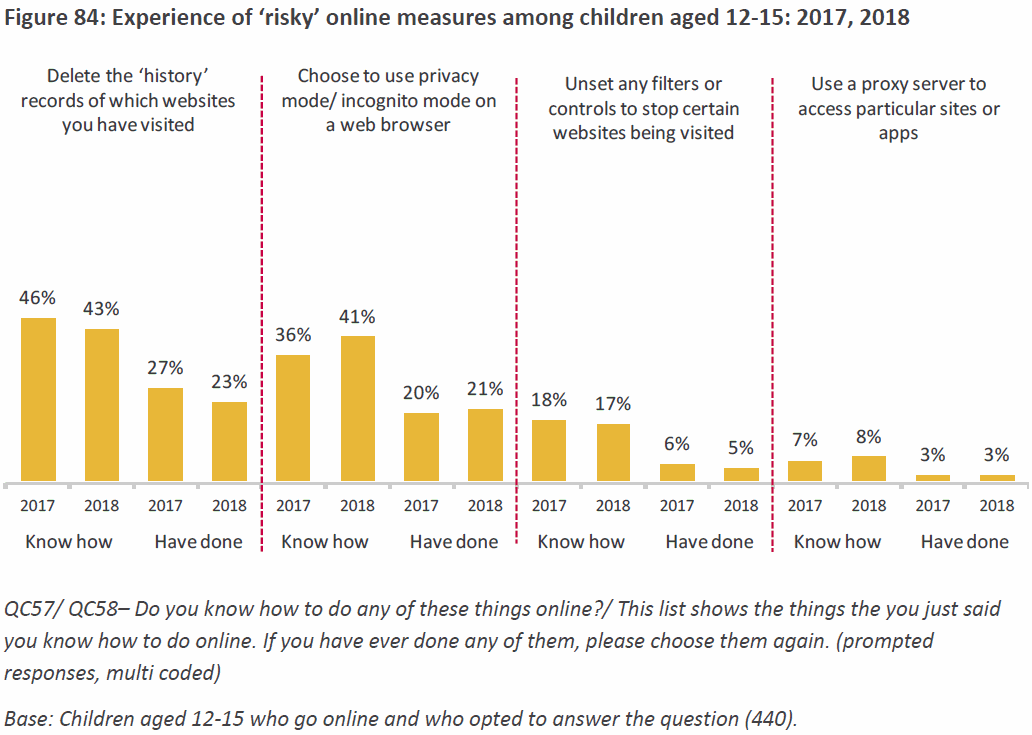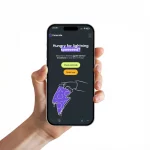Over Half of UK Parents Aware of Network-Level ISP Content Filters
Ofcom has today published their annual 2019 study of media use by UK children and parents, which among other things reports that just over half of parents are aware of the home network-level internet content filters being offered by the biggest broadband ISPs but only around a third actually use them.
At present all of the markets largest broadband ISPs (BT, Virgin Media, Sky Broadband, TalkTalk etc.) offer an optional system of network-level filtering (aka – Active Choice Plus) that blocks potentially harmful websites from the gaze of young eyes (porn, self-harm, gambling content etc.). Under the rules ISPs have to inform you about this during the sign-up process and existing customers were similarly notified a few years ago.
Overall 93% of parents who use home network-level content filters consider them “useful“, and a similar proportion (91%) say this about third-party parental control software. Similarly 74% of those who use home network-level content filters say they block the right amount of content, while 11% say they block too little or block too much (9%).
Advertisement

Meanwhile 15% of parents with children aged 5-15s who use home network-level filters, and one in ten using parental control software, feel their child can bypass these controls. Ofcom itself only asked those aged 12-15 whether or not this was correct and found that 43% knew how to delete their browsing history, 41% could put a web browser into “privacy” mode and 17% could disable any online filters or controls.
Interestingly only 5% of children aged 12-15 admitted to ever having disabled online filters, while 8% said they knew how to use a proxy server to access particular sites or apps and around half of them had done this. Children will naturally be less likely to tell the truth when asked such a question for fear they may get into trouble, even when told they won’t.

Advertisement
Key Findings (Parental Mediation)
• Nearly all parents of 3-4s and 5-15s whose child goes online (97%) use at least one of the four approaches to mediate their child’s use of the internet.
• Just over half of parents of 3-4s and 5-15s who have home broadband and whose child goes online are aware of home network-level content filters (51% for 3-4s and 57% for 5-15s). Awareness is, however, lower compared to last year for parents of 3-4s (51% vs. 66%) and for parents of 5-15s (57% vs. 62%), as is use of these filters among parents of 3-4s (29% vs. 39%). A third of parents of 5-15s use these filters, comparable to last year.
• Parents of 3-4s and 5-15s are also less likely to be aware of parental control software90 compared to 2017 (54% vs. 64% for 3-4s and 60% vs. 65% for 5-15s), although use is unchanged.
• Parents are satisfied with content filters: as in previous years, more than nine in ten parents of 5-15s who use home network-level (93%) or parental control software content filters (91%) consider them useful, and more than seven in ten users of each type of content filter say they block the right amount of content.
• Half of parents of 5-15s with home broadband whose child goes online, and who do not use home network-level filters, say that this is because they use other types of supervision (49%) or because they trust their child to be sensible/ responsible (48%).
• Around half of parents of 3-4s (47%) and more than half of parents of 5-15s (56%), whose child uses a smartphone or tablet, are aware of at least one of the three tools we asked about for restricting app installation or use. At least one in five parents of 3-4s (21%) and 5-15s (29%) use any of these three tools.
• More than a third of parents of 3-4s (35%) and eight in ten (81%) parents of 5-15s whose child go online have ever talked to their child about how to stay safe online; the likelihood of this increases with age. While parents of 3-4s are more likely to have done this since last year (35% vs. 26% in 2017), the reverse is true for parents of 5-15s (81% vs. 85%) – this is due to a decrease among parents of 12-15s (87% vs. 92%).
• Two in five parents of 8-11s (40%) and seven in ten parents of 12-15s (71%) with their own mobile phone say their child is allowed to keep their phone with them at bedtime; fewer parents say their child is allowed to keep their tablet with them at bedtime (28% for 8-11s and 61% for 12-15s).
• Parents of 5-15s whose child uses Instagram or Snapchat are more likely than last year to be aware that these sites have a minimum age requirement (66% vs. 50% for Instagram and 60% vs. 44% for Snapchat). Despite this increase in awareness, parents are no more likely to correctly identify the minimum age of 13 for use of these sites or apps (28% vs. 21% in 2017 for Instagram and 21% vs. 15% for Snapchat).
• Among parents whose child has a mobile phone, 45% of parents of 8-11s and 33% of parents of 12-15s say their child’s phone has a bar on adult content in place. Rules about mobile phone use are more likely for 8-11s (82%) than for 12-15s (72%).
• Three in five parents of 3-4s (57%) and 5-15s (60%) say that mandatory PINs are in use on the TV service(s) they use at home.
• More than half of parents of 3-4s (56%) and 5-15s (62%) say it is possible to set up voluntary PINs on the TV service(s) used at home. A third of parents of 3-4s (32%) and 38% of parents of 5-15s use voluntary PINs.
At this point we should remind readers that the Digital Economy Act 2017 (summary) proposed to force an age-verification system upon “commercial” websites and apps that contain pornographic content, which is due to be formally introduce during April 2019.
Under this approach the British Board of Film Classification (BBFC), which has been handed the responsibility of regulating all this, will also gain the power to force ISPs and mobile network operators into blocking commercial pornographic websites and apps that fail to put “tough age [18+] verification measures” in place. Unlike the current approach, this blocking will not be optional (details here).
Ofcom’s full report can be read here and it covers a lot of other areas related to media and internet use by children.
Mark is a professional technology writer, IT consultant and computer engineer from Dorset (England), he also founded ISPreview in 1999 and enjoys analysing the latest telecoms and broadband developments. Find me on X (Twitter), Mastodon, Facebook, BlueSky, Threads.net and Linkedin.
« RootMetrics H2 2018 Study Name EE Top and O2 Bottom for UK Mobile

















































Comments are closed